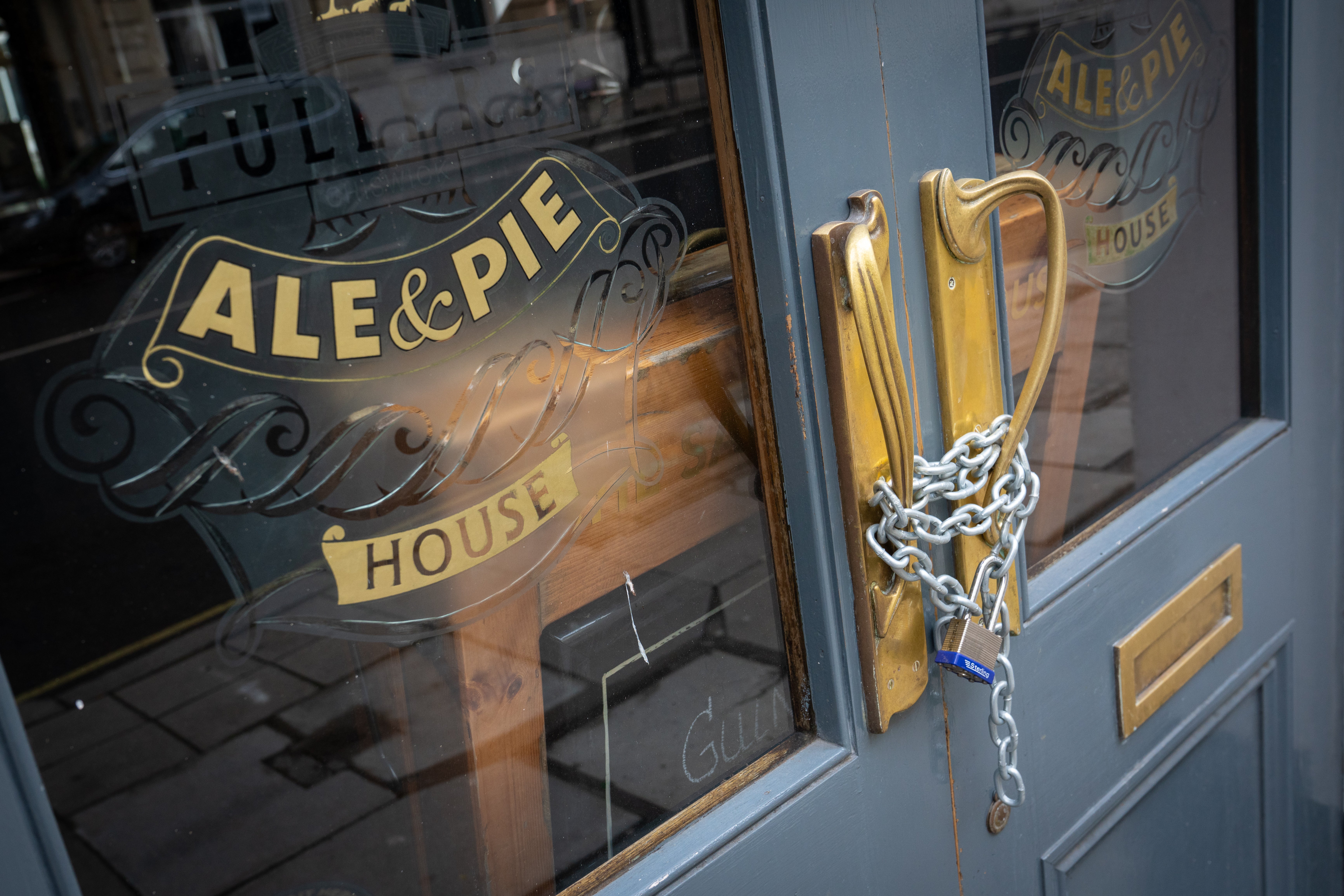Pub firm closures up 180% as costs soar and punters stay home
Industry pleads for more energy bill support as nearly one-quarter of pubs have no money in the pot
The number of pub and bar companies calling last orders has risen by more than 180 per cent in a year amid surging costs and falling sales, new figures suggest.
Insolvencies rose from 280 in 2021 to 512 last year, accountancy group UHY Hacker Young said, as a survey found nearly one-quarter of pub firms could be forced out of business after just three bad months.
The cost of living crisis and interest rate rises have hampered customer spending on drinks and meals in pubs, while rail strikes have stopped punters from travelling into city centres, a report says.
After years of intermittent Covid lockdowns and social restrictions, many pub and bar companies have very little savings or the capacity to borrow more. The economic downturn has been the final push into insolvency for some, the accountancy group said.
Peter Kubik of UHY Hacker Young said: “It’s deeply concerning that so many pubs and bars are closing their doors. In addition to the financial consequences for owners and employees, the loss of a pub can be felt quite keenly by the community.
“This is a particularly difficult period for pub and bar owners, who find they need to spend more and more while earning less and less.”
He added: “Perhaps the government should consider what it can do to alleviate pressures, for instance, by extending the energy bill relief scheme for the hospitality sector.”
Even with the relief scheme, this winter has seen pubs and restaurants have been cutting opening hours to save on bills at quiet times, industry bodies report.
The Treasury announced last month that support for businesses will be drastically cut back from the end of March as the global gas price crisis recedes.
Despite falling bills, pubs are still likely to struggle as the new scheme is set to pay out only around 6 per cent of the current monthly maximum of £3,100.

Trade representatives, UKHospitality, Hospitality Ulster, British Beer and Pub Association and the British Institute of Innkeeping, this week called for further support in a joint letter to Grant Shapps, who has taken the helm of the government’s new Department for Energy Security.
Pubs will be heading into spring with bills of at least three and a half times that of the same time last year, they said.
A joint survey of members found one in three pub businesses is at risk of failure in the next year, with one in six trying to weather the economic storm with no cash reserves.
Some 23 per cent of members said they had fewer than three months of reserves left.
Some positive figures have emerged from industry monitor CGA’s latest sales survey, which showed pubs sold more drinks every week in January relative to the same time last year.
However, the CGA noted that the UK was not entirely free of Covid restrictions in early 2022, and despite higher sales, flatlining weekend figures suggest punters are avoiding high-spending nights out.
Join our commenting forum
Join thought-provoking conversations, follow other Independent readers and see their replies
Comments



Bookmark popover
Removed from bookmarks